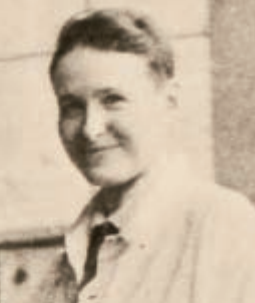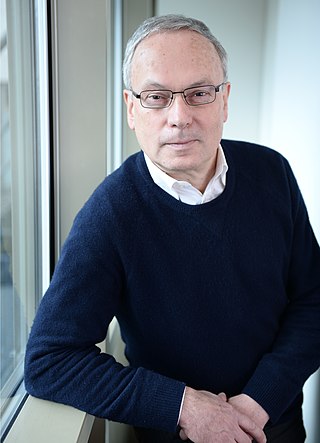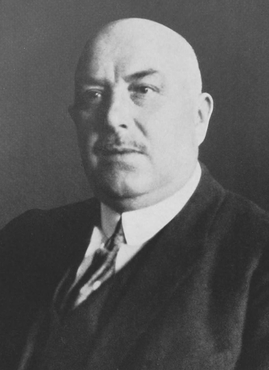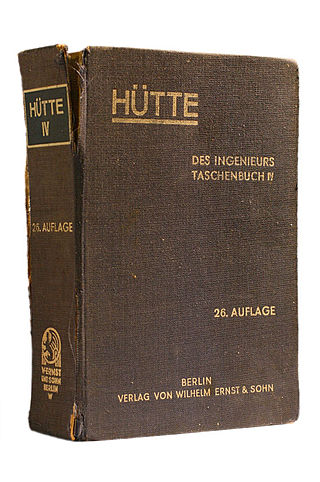
Gustav Anton Zeuner was a German physicist, engineer and epistemologist, considered the founder of technical thermodynamics and of the Dresden School of Thermodynamics.
Gustav Niemann was a mechanical engineering professor who is regarded as an expert in machine elements.

Eugen Karl Albrecht Gerstenmaier was a German Evangelical theologian, resistance fighter in the Third Reich, and a CDU politician. From 1954 to 1969, he served as the third president of the Bundestag. With a tenure of over 14 years, he is, as yet, the longest serving presiding officer of the German parliament and also the only person to preside over the Bundestag during four legislative periods.

John Ripley Freeman was an American civil and hydraulic engineer. He is known for the design of several waterworks and served as president of both the American Society of Civil Engineers and the American Society of Mechanical Engineers.
Heinz Schilling is a German historian.
Günter Ropohl was a German philosopher of technology.

Sabina Jeschke is a German university professor for information sciences in mechanical engineering at the RWTH Aachen University. As of 10 November 2017, she was named member of the management board of Deutschen Bahn AG for digitalization and technology. She is also the director of the Cybernetics Lab IMA/ZLW & IfU. In the summer semester of 2017, she is on sabbatical leave to develop her research in the area of artificial consciousness, and is involved in building a think tank "Strong Artificial Intelligence" at the Volvo Car Corporation in Göteborg. Since May 2015, Jeschke has been a member of the supervisory board of Körber AG, since April 2012 chairman of the board of VDI Aachen. Beginning of January 2023 she took on an additional position as a senior advisor at Arthur D. Little.
Martin Kaltschmitt is a German engineer and professor at Hamburg University of Technology. He is head of the Institute of Environmental technology and Energy economics at Hamburg University of Technology.

Michael Roth was a German engineer and professor of automation, specializing in microprocessor technology, computer science and sociology as well as philosophy of science. He was one of the pioneers in the area of computer engineering in Germany.

Karl Reinisch was a German electrical engineer and professor for control engineering in Ilmenau. Under his lead, a solid foundation for automation and system technology for cybernetics was developed at the Technische Universität Ilmenau. For many years, he was active at the International Federation of Automatic Control (IFAC).
Julius Magg was an Austrian engineer and university professor. In the early 20th century, he contributed significantly to the further development of the Diesel engine. Later, he was known as the founder of the Graz method of engine design.

Ira (Irene) Rischowski was one of Germany's first female engineers and active in the German anti-Nazi resistance group Neu Beginnen before fleeing to Britain. In the UK she became a member of the Women's Engineering Society, serving on the Council and supporting efforts to encourage British women to become engineers.

Ilse Knott-ter Meer, born Ilse ter Meer, was one of the first female German mechanical engineers with a degree in engineering.

Karl-Eugen Kurrer is a German civil engineer and expert on the history of construction.
Karsten Stahl is a German mechanical engineer. He is a Professor in the TUM School of Engineering and Design at the Technical University of Munich (TUM) and is considered a specialist in machine elements, transmissions and drivetrain technologies.

Udo Mainzer is a German art historian and monument conservator. He held office until September 2011. as director of the LVR-Amt für Denkmalpflege im Rheinland and Landeskonservator of the Landschaftsverband Rheinland.

Imanuel Lauster was a German engineer and businessman, who worked for Rudolf Diesel and drew up Diesel’s design for the first Diesel engine, Motor 250/400. He also served as the head of M.A.N.'s board of directors from 1932 to 1934.
Gerhard Schricker was a German legal scholar with a focus on intellectual property and competition law. He was a full professor at Ludwig Maximilian University of Munich from 1973 to 2000 and served as Director of the Munich-based Max Planck Institute for Foreign and International Patent, Trademark, and Copyright Law between 1971 and 2003.

The Hütte - Das Ingenieurwissen is a reference work for engineers of various disciplines. It was compiled for the first time in 1857 by the Akademischer Verein Hütte of the Königliches Gewerbe-Institut in Berlin, from which the association of German engineers Verein Deutscher Ingenieure (VDI) emerged. The authors were members of the association. The technical illustrations were created in woodcut technique by Otto Ebel. It is published in constantly revised editions to this day and is therefore the oldest German reference work still available today.












